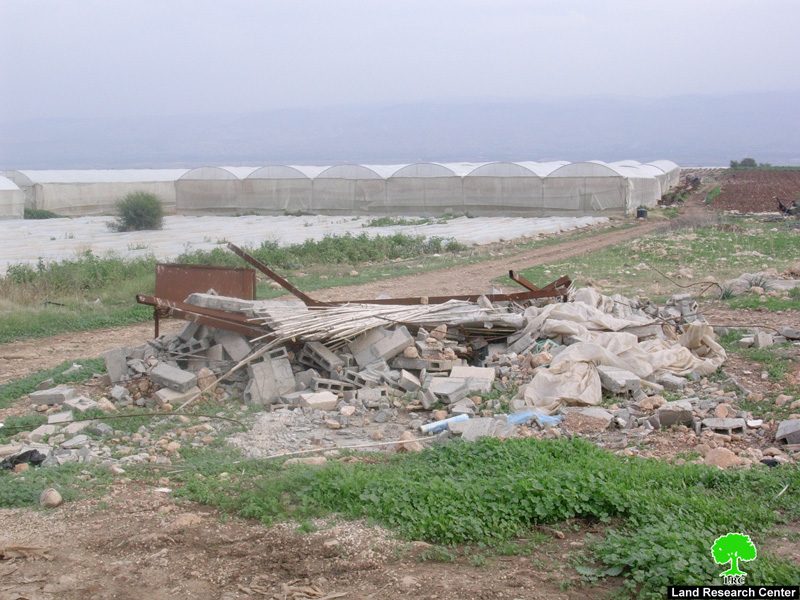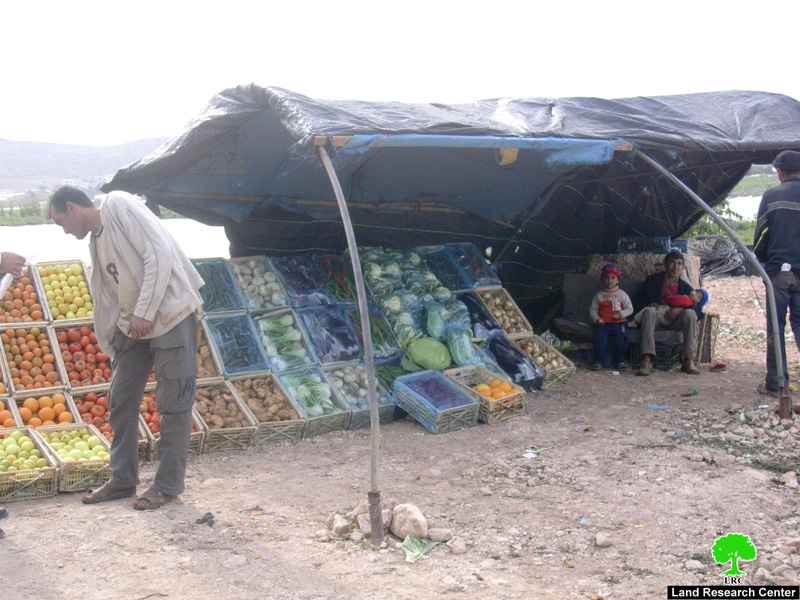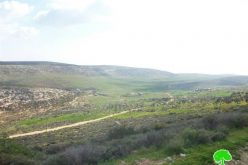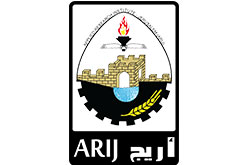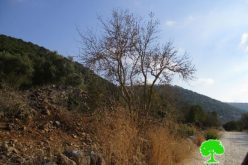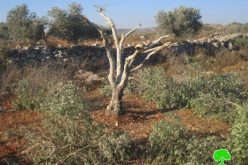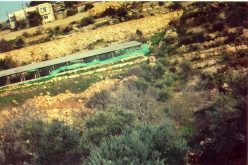Israeli Occupation Forces Prevent Khirbet Yazra Farmers from Establishing an Agricultural Road
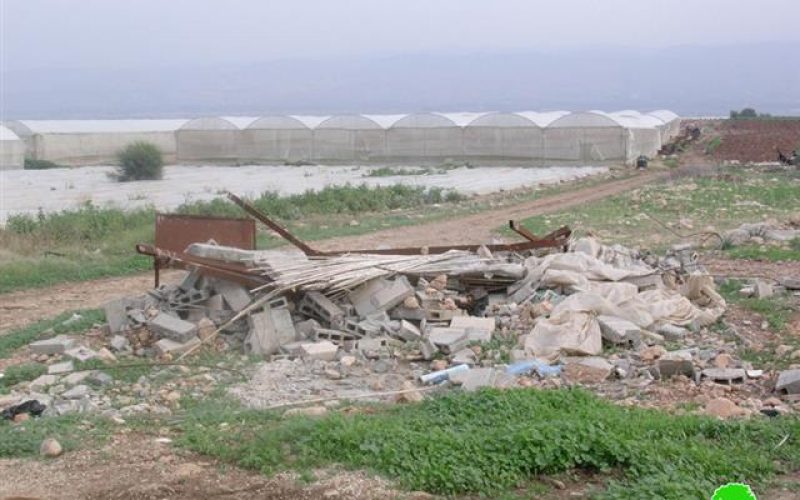
The residents of Khirbet Yazra, located 6 kilometers east of the city of Tubas, have suffered and agonized for a long time before the Palestinian Ministry of Finance has agreed to fund the construction of an agricultural road linking their Khirbet with Tubas City. The length of the proposed road is 4 kilometers and it was planned to make it easier for the residents of the Khirbet to access essential services in Tubas. However, the joy of the residents did not last for long as Israeli occupation patrols raided the Khirbet a week after the inception of the work on the road and prevented the workers from continuing work on this vital project. Israeli soldiers even seized the IDs of Mr. Na’eem Hafez Mosa’eed, head of the Yazra’s Project Committee, and Mr. Ahmad Kameil, the bulldozer’s driver, while threatening to confiscate all the machinery present at the work site in case the residents continued their project. Israeli occupation forces have stated that work must be stooped as it was carried without a permit in an area classified as Area C. The Israeli measure caused a shock to the residents as they saw their dream of a better life evaporate in front of their very eyes.
The Khirbet is a Palestinian community with a population of 80 people that depend on farming and herding as the main source of income and livelihood. The number of residents usually increases during the spring seasons as a result on the inner migration of Bedouins and other farmers to it due to the fertile grazing fields in the Khirbet which is located in its entirety in Area C. To complicate things even further, the Khirbet is located 1.5 kilometers away from an Israeli military camp used to train occupation soldiers.
The residents of the Khirbet are members of the Bisharat and Daraghma clans and they have been living in the Khirbet for a long period of time in shelters made of tin (except for one house made of concrete). The Khirbet lacks any form of basic infrastructure including electricity, roads and medical resources. The residents depend on the nearby city of Tubas to meet most of daily needs.
Photo 1 & Photo 2: demolitions of agricultural infrastructure in northern Jordan Valley
It is worth pointing out here that ever since the Israeli occupation of the West Bank in 1967 Israel has been continuing its war against Bedouin clusters spread through the West Bank in general and in the Jordan Valley specifically. This war was, and still is, conducted in an effort to displace these clusters to use the vacated lands to enlarge by-pass roads and Israeli colonies. A striking example are the Bedouin communities in the Jordan Valley (including Yazra, Samra, Wadi Al Maleh and Al Aqaba village) which lack the very basic humanitarian services due to Israeli military orders. The herders of these communities are usually chased after by Israeli occupation soldiers as well as by colonists from the nearby colonies of Mihola, Biqoat and Roi.
In addition to the denial of the basic services, Israeli occupation forces are continuing its campaign to issue “stop work” orders against Palestinian Bedouin shelters in the Jordan Valley; in the first week of September 2008 occupation forces issued 13 Stop Work orders against 13 structures in Wadi Al Malih under the pretext that they were built in Area C without a permit. Even the selling points spread along side Road 90 were targeted in late August 2008 with removal. The points (a.k.a. Basta) belonged to 13 Palestinians from the Jordan Valley and it constituted a source of income for 17 families. They were destroyed with the aim of forcing the owners out of the Valley despite the fact that these points were located 50 meters away from Road 90.
Summary:
The Israeli policy vis-à-vis Khirbet Yazra and other nearby khirbets is obviously geared at forcing the displacement of its Palestinian residents in an effort to confiscate their vacated lands for the benefit of Israeli colonies in the Jordan Valley. Such a policy complicates any future political settlements and places major obstacles in achieving the long sought-after peace.
Photo 3: One of the Bastas on Road 90 before its demolition
Photo 4: A general view of Khirbet Yazra.
Prepared by:
The Land Research Center
LRC


